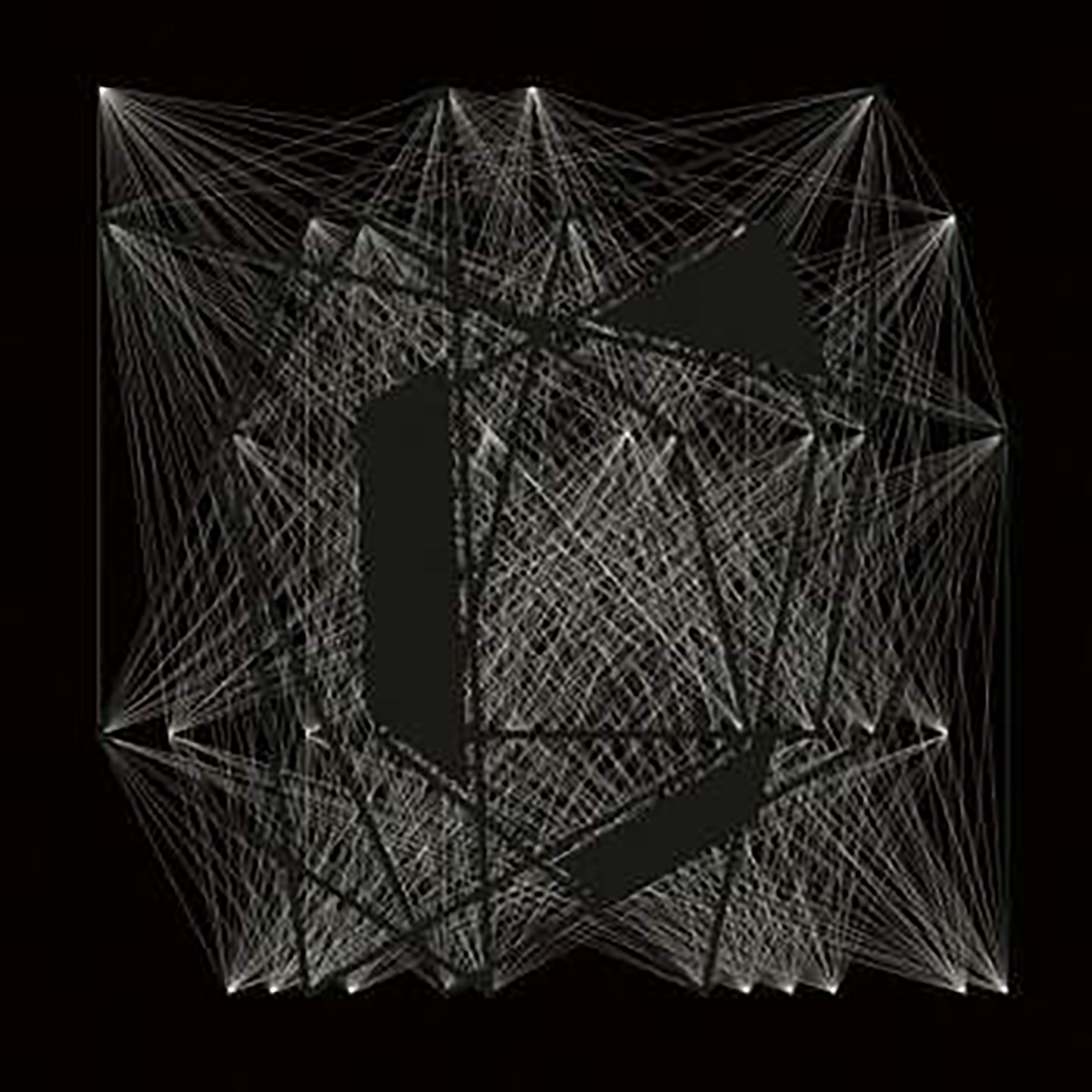 I certainly grouse a lot about the seemingly endless tide of modular synth albums being released in experimental music circles these days, but there are a handful of artists who induce me to marvel at the truly incredible potential of such gear instead. One such artist is erstwhile guitarist Cam Deas, who absolutely floored me with last year's brilliantly twisted and phantasmagoric Time Exercises. Happily, this latest release returns to roughly that same squirming, tormented and mind-dissolving terrain, but the world of the more spacious and nuanced Mechanosphere evokes a somewhat different feel than its more explosive and abrasive predecessor.
I certainly grouse a lot about the seemingly endless tide of modular synth albums being released in experimental music circles these days, but there are a handful of artists who induce me to marvel at the truly incredible potential of such gear instead. One such artist is erstwhile guitarist Cam Deas, who absolutely floored me with last year's brilliantly twisted and phantasmagoric Time Exercises. Happily, this latest release returns to roughly that same squirming, tormented and mind-dissolving terrain, but the world of the more spacious and nuanced Mechanosphere evokes a somewhat different feel than its more explosive and abrasive predecessor.
There are lot of reasons why artists are drawn to modular synthesizers, but the one that I find most compelling is when an artist is led there because they have a vision so radical, deranged, or obsessive that they cannot realize it through any other means.At the very least, Deas' recent work can be said to fall quite squarely in the "radical" category, as he uses a computer-controlled synth on Mechanosphere to construct a strange and complex interplay of erratic rhythms.He also wisely exploits the instrument's rich possibilities in conjuring up densely gnarled and unearthly textures, bringing to life yet another howling cacophony of extradimensional jungle creatures.In fact, one of the most significant differences between Time Exercises and Mechanosphere is simply the perceived proximity of that unholy menagerie.With Time Exercises, it felt like I was in its writhing, squirming, and jabbering midst.With Mechanosphere, it often feels like I am attending some kind of ancient tribal ritual in a remote jungle village and any Lovecraftian horrors that await me are still mostly off in the distance (though I can definitely hear them approaching).As such, the rhythms of that imagined ceremony tend to be the heart of this album, as the heavier sounds are generally more threatening and unnerving than downright apocalyptic.To some degree those rhythms resemble a layered, tempo-shifting collage of traditional hand percussion recordings by some intrepid explorer who vanished into the rainforests of Borneo a hundred years ago.That said, they have since been polished to a futuristic dancefloor sheen and set to an erratic kickdrum thump.As such, Mechanosphere frequently resembles a maniacal dub experiment built from dozens of pitch-shifted and temporally mangled recordings of woodpeckers.    
If there can be said to be a "single" on Mechanosphere, it is unquestionably "Set in Motion," as there is an uncharacteristically lovely and chime-like melody in the eye of its convulsively shuddering and clattering storm.In fact, it would almost feel like a prescient vision of a jerkily kinetic strain of alien dance music if there were not so many heaving, seismic swells violently distending the space-time continuum.The following "Four Flows" shares some fragile ties to dance music's most outré fringes as well, as its shuffling and lurching robo-rhythm is intertwined with the slow pulse of a repeating deep chord.In fact, it approaches an especially textural, mechanized, and off-kilter strain of dub techno, but that comparative accessibility is gleefully curdled by the sickly way that central chord unpredictably slithers and squirms out of its moorings.There are couple other intriguing deconstructions of dance music to be found as well, as "Refract Deflect" sounds like an Andy Stott single being violently stretched, compacted, and pulled apart by unseen demonic forces.Elsewhere, "Collapse" resembles a spasmodically deranged kickdrum pulse in the center of an intense electrical storm.The remainder of the pieces are bit more atmospheric in nature, though that atmosphere can feel disconcertingly alive and malicious at times.On "Drift Though" for example, it feels like the fabric of reality is nightmarishly bulging and tearing as an otherworldly horror strains to break through a dimensional barrier.On "Slip," it sounds like it finally succeeded, as the final moments of the piece evoke grotesquely squirming tentacles emerging from a clattering squall of static and chaos.
While Mechanosphere is an unapologetically visceral and experimentally minded affair from start to finish, it is important to note that there is a remarkably coherent and imaginative vision at its heart.That is best illustrated with the closing "Solitude," as all the ugly, gnarled textures and skittering rhythms vanish to leave only a haze of grinding metallic swells and gentle oscillations that feels like a supernatural mist slowly rising up from the trees.Despite its underlying sharpness and the eerie queasiness of the harmonies, it legitimately achieves a kind of sublime alien beauty.Moreover, there are glimpses of that beauty all throughout the album, oozing out from the gaps in Deas' inhumanly dexterous percussion eruptions in multifarious, distended forms.While I am not sure that Mechanosphere necessarily tops the bombshell of Time Exercises, the shades of melodicism and harmony that fitfully creep into the convulsive chaos mark a significant and welcome evolution, as an album like Time Exercises can only be made once: any attempt to replicate its jabbering elemental force is unavoidably damned to yield diminishing returns.To his great credit, Deas intuitively grasped that and acted accordingly, though that did not dampened his resolve to unleash yet another wildly heaving, synapse-exploding behemoth of an album.Mechanosphere is a different kind of behemoth, however, as it offers some hidden layers of depth to explore and absorb once I get past the more immediate and mind-blowing aspects of its skittering madness and volcanic intensity.
Samples can be found here.
Read More

